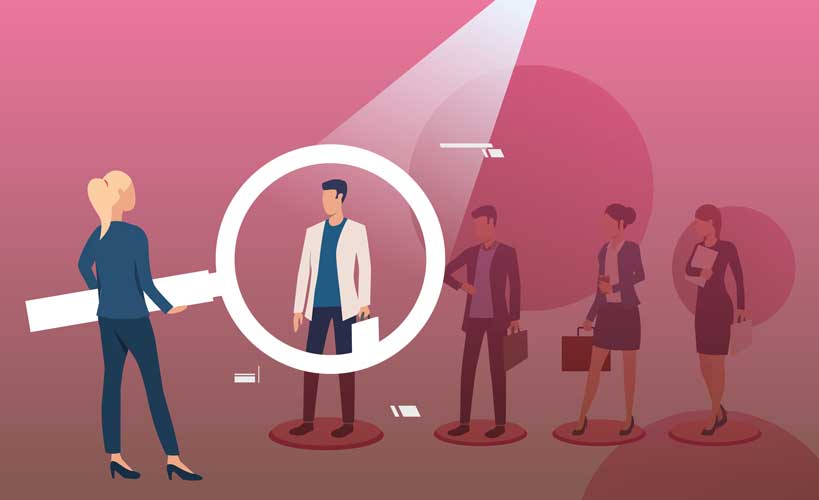With the automation of previously human-only jobs and procedures, artificial intelligence (AI) has surely revolutionized a number of industries. There are several occupations that AI cannot copy or completely replace, despite the worries about job displacement that have been caused by the rise of AI. In this article, we will examine the occupations and professions that demand exclusively human traits, abilities, and characteristics that AI cannot imitate, assuring employment security and the ongoing value of human labor.

1. Careers in the Arts
- Artists and musicians: Although AI is capable of producing art and music, it lacks the human touch, emotional complexity, and cultural context that these individuals contribute to their work. Art frequently serves as a vehicle for the expression of human experiences, feelings, and inventiveness that AI cannot match.
- Writers and poets: While AI is capable of producing text, it finds it difficult to replicate the complexity, feeling, and depth of human narrative. Writing that connects with readers frequently relies on personal insights, cultural expertise, and personal experiences that AI lacks.
- Film directors and producers: Making a movie requires a lot of creativity and teamwork, as well as storytelling, empathy, and artistic vision. While AI may help in some ways, only humans are capable of original thought and artistic expression.
2. Medical Care and Supplies
- Doctors and Surgeons: Although AI can help with medical diagnosis and data analysis, doctors and surgeons offer a comprehensive approach to healthcare. They make crucial judgments that can save a patient’s life, while also taking into account their emotional and psychological well-being.
- Nursing staff and other caregivers: Nursing staff and other caregivers’ compassionate care, understanding, and emotional support are essential to a patient’s recovery. These jobs require interpersonal communication, comfort, and understanding that AI can’t replace.
- Medical Researchers: While AI can analyze enormous amounts of medical data, researchers must still use critical thinking, creativity, and intuition to develop ideas, plan trials, and interpret the results. Scientific discovery greatly benefits from human intuition.
3. Education
- Teachers and instructors: Although AI can offer tailored learning experiences, they also create a spirit of inquiry, critical thinking, and mentoring. They motivate students, offer emotional support, and modify teaching strategies to suit each student’s requirements.
- Psychologists and school counselors provide guidance, counseling, and emotional support to kids dealing with a range of difficulties. Human empathy, active listening, and understanding are crucial to their duties.
4. Roles in Social and Emotional Development
- Psychologists and Therapists: While AI may offer some therapeutic support, the complexity of the human psyche and the depth of human emotions necessitate a subtle and compassionate approach from human therapists.
- societal workers: Social workers address complicated societal issues, frequently including vulnerable populations. Their work necessitates a profound comprehension of human relationships, empathy, and the capacity to speak up for those who are in need.
5. Innovative and Creative Design
- Architects and designers: While AI can aid in design processes, architects and designers offer distinctive artistic perspectives, cultural understanding, and creativity to their projects. When designing, they take into account demands of people and practicality.
- Entrepreneurs and innovators share traits that are inherently present in all people: the capacity to recognize market opportunities, engage in creative thought, and take measured risks. When it comes to data analysis, AI can be helpful, but it cannot replace the creativity and drive of a human.
6. Professions in the legal and ethical fields
- Judges and attorneys: Legal experts deal with difficult choices, compromises, and legal interpretation. They need to think about issues like justice, morality, and ethics, which depend on morals and judgment.
- Philosophers and ethicists: Solving moral and ethical problems calls for careful thought, taking into account society ideals, and having a grasp of human psychology. Deep philosophical debates are only carried out by philosophers and ethicists, not by AI.
7. Response to emergencies and public safety
- Professionals in the fire service and search and rescue teams deal with a variety of high-stress, unforeseen scenarios that call for bravery, cooperation, and swift decision-making. In these tasks, physical aptitude and adaptability of the human being are essential.
- Detectives and police officers: In order to effectively defuse tense circumstances and uphold moral standards, law enforcement officials must constantly assess complex, dynamic scenarios. It is crucial to have empathy, human judgment, and cultural awareness.
8. Arts and entertainment
- Performers of stand-up comedy: People only have humor and good comedic timing. Observational humor, emotional connection with the audience, and social and cultural context are all elements that comedic performers rely on, but AI struggles to replicate.
- Live Performers and Entertainers: Live performances and entertainment have an indescribable energy and emotional impact on their audiences. Human artists stand out from artificial intelligence-generated performances due to their spontaneity, engagement, and charisma.
Conclusion
There are certain jobs and professions that AI cannot replace even as it develops and automates more work. These positions call for characteristics that are exclusively human, such as creativity, empathy, emotional intelligence, and moral judgment. In the future of work, humans and AI will probably work together to complement rather than replace one other’s skills.
Read More: Role of Technology in Education and Its Transformation
It is crucial for people to develop and foster these distinctly human abilities as AI continues to advance if they want to maintain their worth and relevance in the employment market. Furthermore, society must ensure that human values and ideals are upheld in an AI-augmented world by taking into account the ethical and societal ramifications of AI’s growing influence in many industries. By doing this, we can take advantage of AI’s potential while also recognizing and valuing what makes us human.














